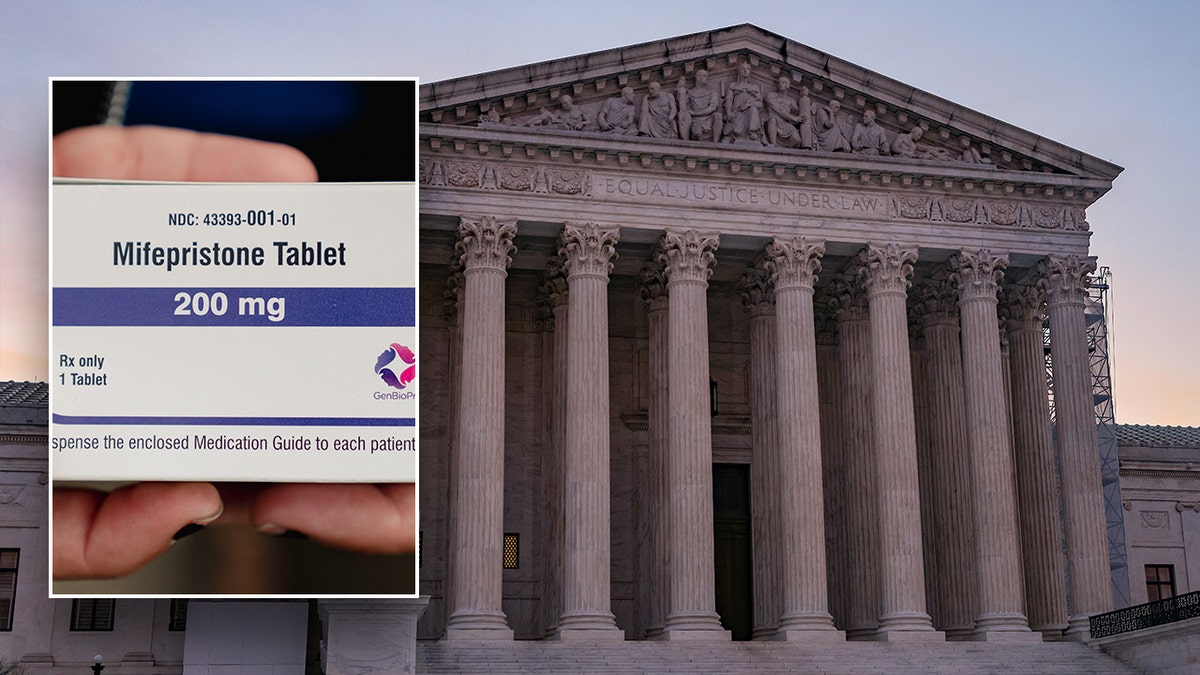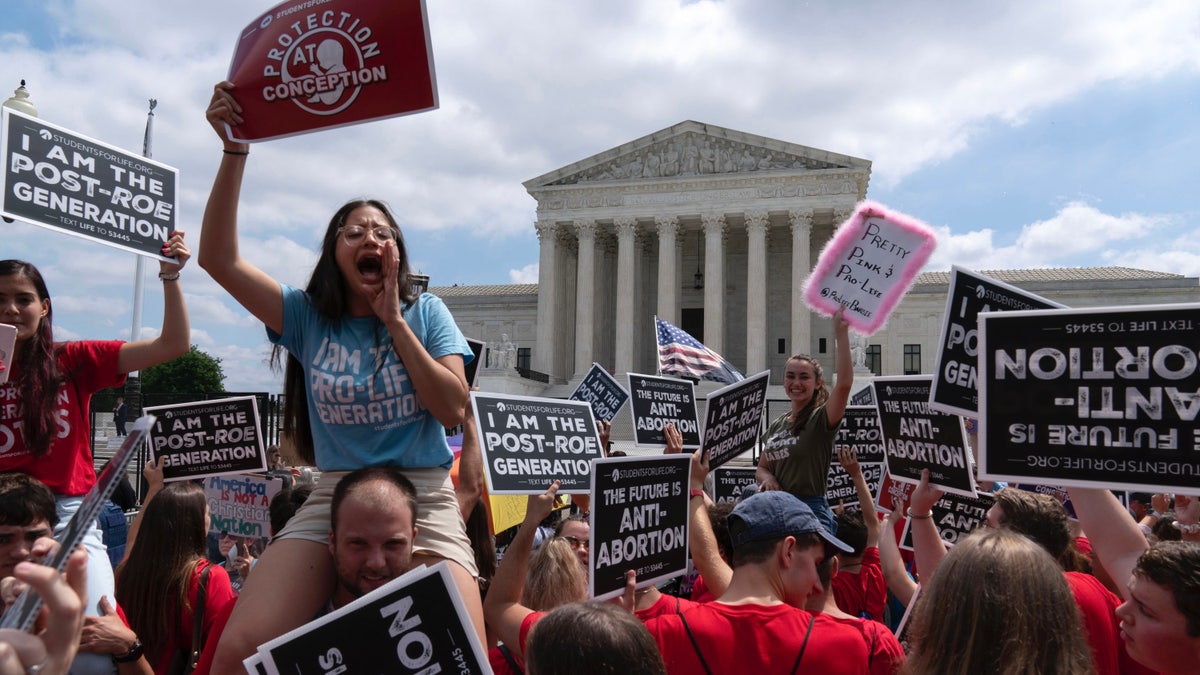The pro-choice movement had every reason to be nervous about the Supreme Court hearing.
After all, this was the same high court that overturned 50 years of precedent by overturning Roe, and by a 6-3 conservative majority.
Now, two years later, the same court was getting a crack at an increasingly popular form of medical abortions with the pill called mifepristone.
Who could stop the justices if they decided to ban these pills, which are especially important in states where abortion has been banned or severely restricted?
With a single ruling, the court could tip the scales in favor of the pro-life movement by cutting off this lifeline for millions of women.
But it didn’t turn out that way.

Tuesdays oral arguments at the Supreme Court seem to show most justices are opposed to outlawing abortion pills. (Getty Images)
Based on the audio of Tuesday’s oral arguments, most justices across the ideological spectrum are opposed to outlawing these pills.
With the exception of Sam Alito and Clarence Thomas, leaders of the anti-Roe wing, the justices made clear that they don’t want to get into this fight.
More than two decades after the FDA approved the use of mifepristone as safe and effective, it looks like the drug will remain widely available.
WHY THE TRUMP BOND CRISIS LOOKS LIKE A CONCERTED EFFORT TO RUIN HIM
When you have Ketanji Brown Jackson and Neil Gorsuch embracing the same point, that is the judicial equivalent of a flashing green light.
Abortion has been a difficult subject for Republicans in the post-Roe era. Democrats have won numerous special elections with candidates who ran heavily on the issue. On Tuesday, one such Democrat flipped a Republican seat in the Alabama House.
Boxes of the drug mifepristone sit on a shelf at the West Alabama Women’s Center in Tuscaloosa, Ala., on March 16, 2022. On Tuesday, March 26, 2024, the U.S. Supreme Court will take up a case that could impact how women get access to mifepristone, one of the two pills used in the most common type of abortion in the nation.
In my Mar-a-Lago interview with Donald Trump, he said Republicans who take too hard a line on abortion, such as opposing exceptions for rape, incest and the life of the mother, are destined to lose. In embracing a ban on abortions after 16 weeks of pregnancy, later modified to 15 weeks, he said something that stuck with me: “You have to follow your heart. But you also have to get elected.”
The stakes are high in the Supreme Court case because mifepristone is now used in 60 percent of all abortions in America.
The skeptical justices expressed concern about the impact on federal regulation if they substituted their views on complicated subjects overseen by the likes of the Food and Drug Administration.

Anti-abortion protesters celebrate outside the Supreme Court in Washington, Friday, June 24, 2022. The Supreme Court has ended constitutional protections for abortion that had been in place nearly 50 years, a decision by its conservative majority to overturn the court’s landmark abortion cases. (AP Photo/Jose Luis Magana) (AP )
Jackson said there is a “significant mismatch” between the claims made by the anti-abortion doctors and their lawsuit “seeking an order preventing anyone from having access to these drugs at all.”
Added Gorsuch: “This case seems a prime example of turning what could be a small lawsuit into a nationwide legislative assembly on an FDA rule or any other federal government action.”
The advantage of these pills is that patients can order them mailed to their homes, even in states with highly restrictive laws.
If SCOTUS were to uphold the appellate ruling, patients would have to obtain the pills in person, and could only use them for seven weeks.
Most of the justices seemed united on the fundamental question of standing – that is, the eligibility to sue. They pressed both sides on whether the plaintiffs had such standing.
SUBSCRIBE TO HOWIE’S MEDIA BUZZMETER PODCAST, A RIFF ON THE DAY’S HOTTEST STORIES
If the high court decides they don’t, they don’t have to deal with any of the more nettlesome questions and can dismiss the case.
But that could prove to be only a temporary reprieve. If the next lawsuit is filed by people with clear standing, that exit ramp would be closed to the justices.
CLICK HERE TO GET THE FOX NEWS APP
As long as there are lawyers and strong moral feelings on both sides, this sort of litigation will drag on, the legacy of a new and supercharged abortion environment.
Original News Source Link – Fox News
Running For Office? Conservative Campaign Consulting – Monthly Rates!
